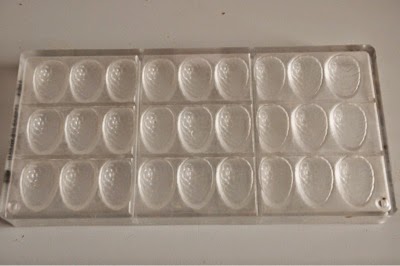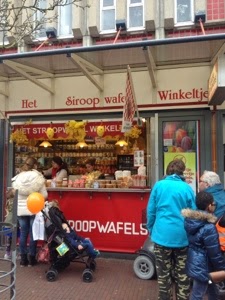Language has been evolving for so long that there is no language that doesn't borrow words from another language. An obvious example would be English, but today I'll look at slightly more surprising languages.
To start: Yiddish.
There are quite a few words that have found their way into every day Dutch. Some might be more common in Amsterdam or to people whose (grand)parents grew up in/around Amsterdam.
To start: Mokum. Amsterdam's nickname! Makom = city.
And these are things I say all the time: tinnef (tinnoef:rubbish), versjteren (to ruin), ramsj (rubbish, usually cheap crap), mazzel (either: lucky, or as a greeting when leaving 'de mazzel'), kapsones (hybris), jatten (from jad=hand, means stealing), achenebbisj (poor, run down).
German also has crept into every day language. Some words that I use are so common, for a long while I didn't even realise they were German! 'überhaupt'= in any case (hard to translate though), 'sowieso'= anyhow, 'schmink'= face paint, and 'schwalbe' = dive (as in football) (it also literally means swallow(noun)).
There are also words that are used quite a bit in every day language but can't be seen as official Dutch words: zum Kotsen = literally to throw up about, so not cool; unheimlich = uneasy, scary; umlaut; streber = overachiever; spitzen= en pointe balletshoes; spachtelputz = type of wall plaster; schadenfreude; angstgegner.
A lot of words in Dutch find their origin in the french language. In fact there are so many I could write about it for weeks on end. So I will just pick a few that I think are interesting or the most wel known.
The two most commonly used words that are french but were 'dutchiefied' are portemonnee and paraplu. Portemonnee comes from porte monnaie, to carry money and you guess it, it's a wallet or coin purse. Paraplu comes from the french parapluie. For the rain, or more, against the rain. An umbrella! There are two words that have differed in spelling in the dutch language over time from french to dutch back to french: Bureau (either desk or station (as in police station, not train station)) and cadeau (present). In a 'we need to be more Dutch phase' these words were to be spelled buro and kado. Which, to me, still looks ridiculous.
Some other french words we use: Coulant = benevolent; decolleté = cleavage; fouilleren = frisk search; gêne = shame (as in 'I know no shame'); monteur = mechanic. And so on and so forth, many words in English also stem from French. All these languages are married and have had many babies ;-)
Another area of great influence on the Dutch language is Indonesian.
Amok = from amuk: trouble (to cause trouble); matteklap = mataklap, from mata galap: bat crap crazy; piekeren = from pikir, to worry; senang = happy, content; pakkie-an = from pakaian (clothing: responsibility (mostly used as 'this is not my responsibility')); and many more.
As you can see, our language is as international as we like to think our country is. Maybe it's also the reason we speak so many foreign languages, we're bound to already know some words!



























